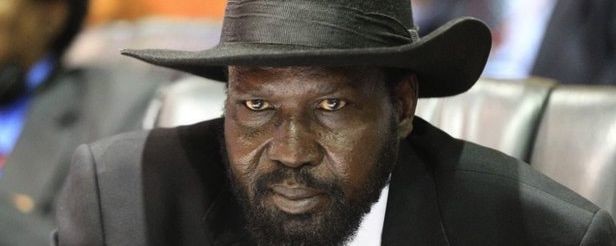Opinion: Significant promise from Kiir not to contest next election?

The author of this article contends that the South Sudanese president may offer not to contest the next election in South Sudan as part of a peace deal with the opposition. He says that this offer, if it saves the country from more war, would be a ‘good gesture’.
There are signals from the IGAD diplomatic walls in the northern Ethiopian city of Bahir Dar insinuating discussions of President Kiir offering an unwritten “gentleman's agreement” not to run again. But some diplomats said that, given a history of distrust between the two, any commitment by Kiir would have to be clearly signed.
The hard-fought independence is yet to bring to a halt the long suffering of the South Sudanese populace. Six years of autonomy, plus three years of independence down the line, the majority of the South Sudanese are still hankering for basic necessities: shelter, food, education and health, exacerbated by the current self-inflicted conflict. The ongoing peace talks between the warring parties carry no hopes for the common South Sudanese, but only to broker a power sharing deal among the timeworn warring wolves.
As the peace talks headways, there are ongoing unnecessary and enduring finger-pointing exercises across the country and elsewhere, as to whom or which group should be apportioned the blame of the genesis of the ongoing conflict, which indeed flout the requisite and the appeals for the people of South Sudan to peacefully co-exist. President Kiir has several times in the past pledged not to take South Sudan back to war. He needs to continue demonstrating this by doing everything in his power to end the current bloody crisis.
The current efforts by the parties, particularly the IGAD mediators and the government of South Sudan are commendable. The recent protocol on agreed principles on transitional arrangements towards resolution of the crisis in South Sudan, though being disputed by the opposition could be a worthy working document in initiating peaceful means.
The Protocol limits the proposed prime ministerial position, prearranged for the rebels to up to the end of the proposed transitional period, without future prospects of contesting in the general elections by the occupier. To the opposition and the supporters, that is a big blow, particularly when the reverie is to class the current rebel leader Dr. Riek as the prime minister in the transitional period, and the future hopeful presidential candidate.
On the other hand, the conditions set in the protocol (articles 3, 4, 5 &6); register a constitutional triumph for the people of South Sudan and that the precedence must not be set to an undemocratic acquisition of power.
One wonders if that would persuade the opposition and supporters to renounce the pugnacious stance, and work jointly with the government of the day for a peaceful and prosperous South Sudan. If the rebels’ side continues with their unfeeling standpoint, the burden will now lie on the government of South Sudan to maneuver alternative peaceful means that would lure the rebels to commit to them.
President Kiir previously self-confessed that both sides of the conflict are his people, and that is an obligation he would never want to discount now. On the other side, the rebels may not give a heed to anything, since their position carries no any endorsement from the people of South Sudan.
There are signals from the IGAD diplomatic walls in the northern Ethiopian city of Bahir Dar insinuating discussions of President Kiir offering an unwritten “gentleman's agreement” not to run again. But some diplomats said that, given a history of distrust between the two, any commitment by Kiir would have to be clearly signed.
It is indeed an immense ask, particularly at this critical time when the muscle-pulling tempo is still high. Nonetheless, the criticality calls for atypical and thoughtful moves from J1 Palace. If President Kiir’s stepping aside by the end of transitional period saves the people of South Sudan from the elongated scourge of war, then the issuance of the promissory note by the president promising not to contest in the national elections after the transitional period would be a good gesture, which in the end could justify his love for the people of South Sudan.
In the long run, this could as well restore his dented legacy and desired image in the South Sudanese independence struggles. The people of South Sudan regardless of their tribes, religions and other creeds need to peacefully co-exist.
The views expressed in ‘opinion’ articles published by Radio Tamazuj are solely those of the writer. The veracity of any claims made are the responsibility of the author, not Radio Tamazuj.